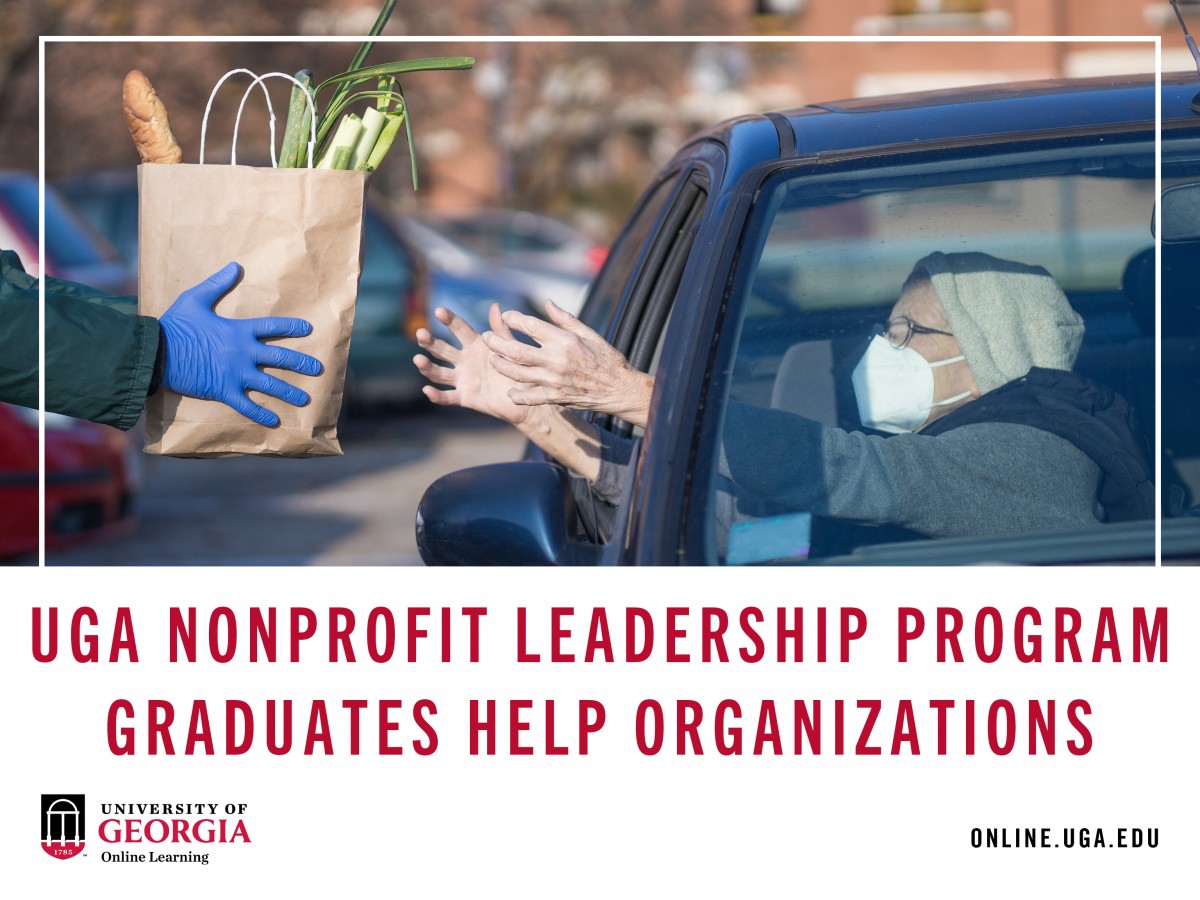Graduates of UGA Nonprofit Leadership Program Help Guide Organizations Through Change
Graduates of UGA Nonprofit Leadership Program Help Guide Organizations Through Change
Food insecurity reached new heights in spring 2020, when COVID-19 hit the United States. Fortunately, Cameron Turner, director of institutional giving for the Atlanta Community Food Bank, was prepared, thanks to the UGA Executive Leadership Program for Nonprofit Organizations (ELPNO).
 “We had to be stronger leaders to get the work done and lead our team through a difficult time where everyone was teleworking and putting in longer hours to get everything done,” Turner said. “ELPNO better prepared me to lead during the pandemic.”
“We had to be stronger leaders to get the work done and lead our team through a difficult time where everyone was teleworking and putting in longer hours to get everything done,” Turner said. “ELPNO better prepared me to lead during the pandemic.”
Turner was one of 19 nonprofit leaders from across Georgia to complete the nonprofit leadership program at the J.W. Fanning Institute for Leadership Development, a unit of UGA Public Service and Outreach, in January 2020.
“It expanded my knowledge to lead teams better and work cross-functionally in a stronger way,” Turner said. “That came into play especially during the pandemic and helped me grow strategically while leading my team along with other areas of the organization. I learned how to ask the right questions to assist our organization in reaching new heights around our work during an extremely challenging time.”
In its first 13 years, more than 260 nonprofit professionals have completed the Executive Leadership Program for Nonprofit Organizations. These nonprofit leaders represent over 200 organizations in eight states and around the globe.
For anyone interested in more non-profit leadership opportunities the Office of Online Learning offers a Graduate Certificate in Nonprofit Management & Leadership through the School of Social Work.
Over the course of five days, participants explore all areas of nonprofit leadership, from thinking and leading strategically to finances and ethics.
“Effective nonprofit leaders must not only understand their own strengths and weaknesses, but also understand how to guide and collaborate with co-workers, board members and other stakeholders to position the organization for success,” said Julie Meehan, Fanning Institute public service assistant. “This program provides current and emerging nonprofit leaders an opportunity to build those skills, learning from faculty and from each other.”
Connecting with other nonprofit leaders is a key benefit of the experience, said Olivia Garrison, community integration program manager for The Warrior Alliance and 2020 ELPNO graduate.
“I had the opportunity to build relationships with peers in the nonprofit field and learned that challenges I face, many others are dealing with also,” Garrison said. “Even during the pandemic, we had virtual alumni meet-ups where we could talk with each other about what we were facing and bounce ideas off of each other.”
The program benefits nonprofit professionals, regardless of their title, said Garrison, whose position is in middle management.
“It showed me that I am prepared and ready to take on nonprofit leadership roles” she said. “I think the program is an excellent opportunity for not just current nonprofit executives, but also emerging leaders in the sector.”
Neither Garrison nor Turner were the first individuals from their organization to attend the program, and several organizations use it to build leadership capacity, said Sayge Medlin, Fanning Institute public service associate.
“As an organizational development tool, it allows nonprofit professionals to learn skills beyond their normal job responsibilities,” Medlin said. “This allows an organization to strengthen itself by preparing employees for future roles in the organization.”
Regardless of whether you have been working in the nonprofit sector for two years or 20, ELPNO has a lot to offer, said Turner.
The Executive Leadership Program for Nonprofit Organizations digs deep into all areas of the nonprofit sector, Turner said.
“I think leaders need to continue sharpening their skills and it provides a great opportunity to do that.”
Read the original article here.
